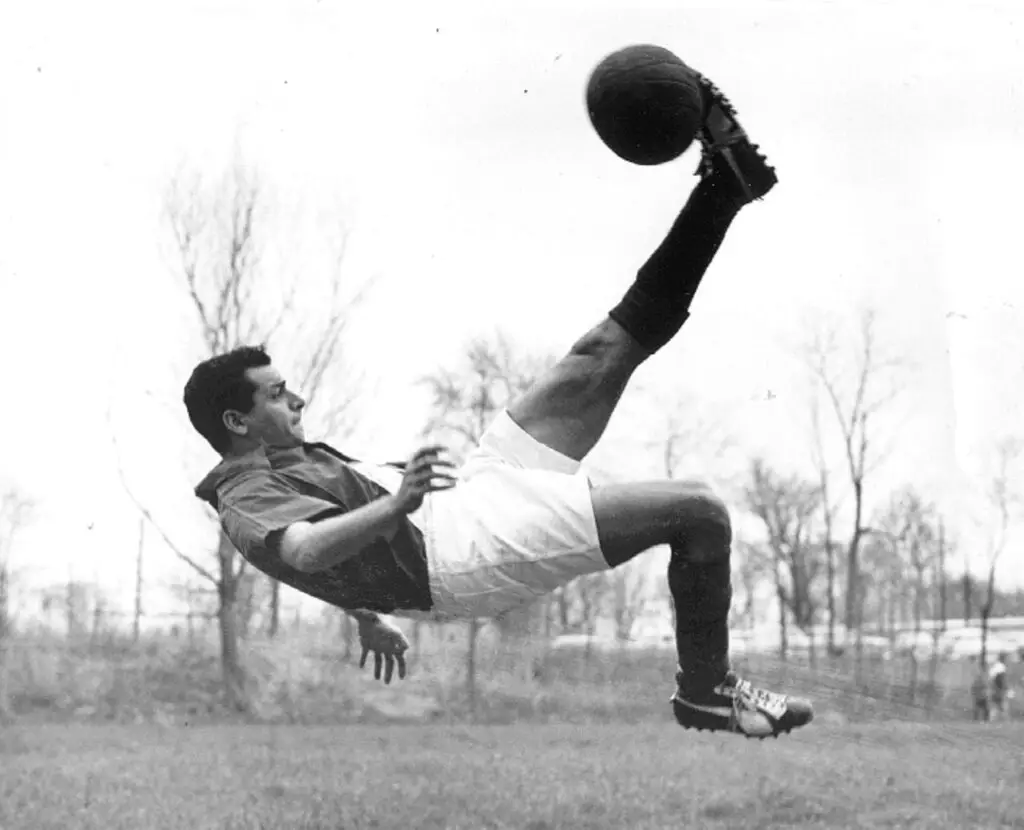The early 20th century was a watershed in the history of not only spicy jackpots casino, but English football, ushering in an era of unprecedented transformation that would go down in the annals of time. During this period, football evolved from its very beginnings, finding its rhythm and identity amidst societal changes and the zeal of a nation passionate about the beautiful game.
As we delve into this transformative era, the birth of football legends and the formation of iconic teams become key threads woven into the fabric of English football’s golden age. The foundations laid during these years not only shaped the trajectory of football in England, but also contributed to its global recognition.
The Birth of Football Legends: A Journey through the Icons
The canvas of English football has been coloured by the vibrant hues of the football legends of this golden era. From the indomitable Dixie Dean, whose goalscoring exploits set records that echoed through the decades, to the elusive Stanley Matthews, known for his dazzling dribbling, these legendary players not only dominated the English pitches but also left an indelible mark on the world football stage.
The inter-war years saw the emergence of dynamic duos and formidable teams that wrote their names into history. The lethal partnership of Dixie Dean and Bill “Dixie” Walker at Everton, the formidable Arsenal of the 1930s, and the legendary Huddersfield Town team that achieved a historic triple championship in the 1920s are just a few chapters in the rich tapestry of English football’s golden age.
The pinnacle of success: England’s triumphs on the international stage
The zenith of English football manifested itself on the international stage, most notably with the historic 1966 World Cup victory. The footage of Bobby Moore lifting the coveted trophy at Wembley Stadium remains an enduring symbol of England’s football prowess during this golden age. This tournament, filled with iconic moments such as Geoff Hurst’s hat-trick in the final, cemented England’s place in football history.
In addition to the World Cup, the England national team won the English domestic championship, demonstrating a consistent dominance over their neighbours. Many players shone not only in domestic competitions, but also contributed significantly to England’s success on the international stage. Such footballers include:
- Stanley Matthews;
- Tom Finney;
- Bobby Charlton;
- and others.
The early 20th century was undoubtedly a period of glory for English football, but it was not without its challenges. The interplay of talent, strategy and determination faced formidable opponents both on and off the pitch. The evolving landscape of the game, coupled with changes in society, created unique obstacles that the football community had to overcome. At the same time, it has helped to grow the industry and cement it as one of the most attractive sports in the country.
The Intersection of Football and Gambling: A Fragile Balance
The appeal of football is often intertwined with the ever-present world of gambling. From friendly betting between fans to the complexities of modern sports betting, the relationship between English football and gambling has evolved over decades. It’s important for fans to understand the delicate balance between enjoying the beautiful game and gambling responsibly.
The intertwined histories of football and gambling present a complex story, from informal betting among spectators in the early twentieth century to the sophisticated betting markets of today. Exploring this interrelationship allows us to understand how the dynamics of sport and gambling have shaped and are shaping the golden era of English football.
Preserving the Legacy: English football in the modern era
In reflecting on the ‘golden era’ of English football, it is important to recognise its enduring impact on the sport. The legacy of players such as Sir Tom Finney and Sir Stanley Matthews continues to inspire the modern generation, reminding us of the rich history that paved the way for the modern game. The evolution of English football, coupled with its historic triumphs, lays the foundations for an exciting future.
Echoes of the Golden Era can be seen in the rigorous training, tactical innovation and global fan engagement that define modern football. Lessons learnt from the challenges faced during this period continue to shape the resilience of the sport, ensuring that the spirit of English football’s ‘golden age’ continues.
Conclusion
In the early twentieth century, English football not only defined itself, but also set standards that are timeless. The golden era remains a testament to the passion, skill and indomitable spirit inherent in this beautiful game. As we celebrate the milestones of the past, we look forward to future chapters that will undoubtedly add new layers to the rich tapestry of English football. The echoes of this golden era continue to resound, reminding us that the heart of football beats to the rhythm of history.




